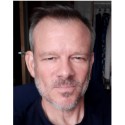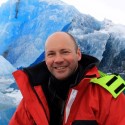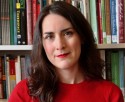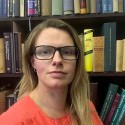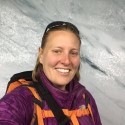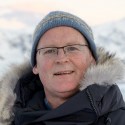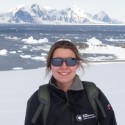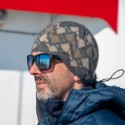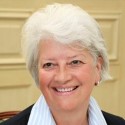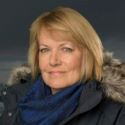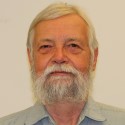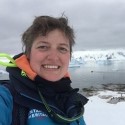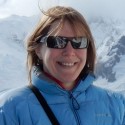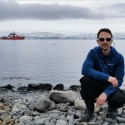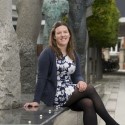Composition of the Committee
The Committee is composed of experts from the fields of Antarctic toponymy, science, geography, navigation, international relations and exploration. It includes representatives from each of the following organisations:
- Government for British Antarctic Territory
- British Antarctic Survey
- Permanent Committee on Geographical Names
- Royal Geographical Society
- Scott Polar Research Institute, University of Cambridge
- UK Antarctic Heritage Trust
- UK Hydrographic Office
In addition there are up to three expert members with expertise in Antarctic toponymy and ad hoc members with expertise in relevant disciplines.
The Secretary is responsible for all of the administrative and organisational work of the APC and is based at the British Antarctic Survey in Cambridge.
Committee Members
-
Dr Mark BelchierGSGSSI RepresentativeMark joined GSGSSI in July 2018 as Director of Fisheries and Environment on secondment from the British Antarctic Survey where he has worked since 2000. At BAS he was involved in the establishment of the Government’s laboratory at King Edward Point and developed and managed the science programme there. Mark has a PhD in fisheries ecology, has extensive fisheries research experience in both temperate and sub-Antarctic waters, and has been the lead scientist on nine research surveys of fish resources at South Georgia. He is part of the UK delegation to CCAMLR and was elected chair of their Scientific Committee for two terms from 2016-2019. Mark divides his time between Cambridgeshire and Stanley. Mark is a regular visitor to South Georgia and has spent over a year in total on or around the island.
-
Professor Mark BrandonAd hoc memberProfessor Mark Brandon is a polar oceanographer based at the Open University in the UK. He has spent his career field in polar science based on almost three years field work as a researcher in Antarctica for the British Antarctic Survey, and with the US Antarctic Program publishing ~40 journal articles and 3 books. He has pioneered the use of robots to study beneath the Antarctic sea ice and is committed to teaching and communicating science as widely as possible. Mark has worked extensively with broadcast companies and he was the Principal Academic Advisor for the BBC Frozen Planet series and was a member of the Blue Planet II academic team, and is working on a large future polar broadcasting project. In 2012 he was awarded the Times Higher Education Most Innovative Teacher of the Year Award.
-
Dr Elizabeth ChantAd hoc memberLiz is an Assistant Professor in Global Sustainable Development at the University of Warwick. Her background is in literary and cultural studies, particularly the history of the South American region of Patagonia and its place in the European exploration of Subantarctic Islands. She has previously published on topics including the maritime charting of Patagonia in the eighteenth century, and the representation of Antarctica in the fiction of Chilean author Francisco Coloane. Liz is also Treasurer and a Trustee of the International Society for the History of the Map, which promotes the study of map history.
-
Catherine CheethamPCGN RepresentativeCatherine Cheetham is Head of the Permanent Committee on Geographical Names advising UK Government on the writing of foreign geographical names; she started with PCGN in 2001 and took over as the Head in 2013. Her particular interest is romanization, allowing a standardized transfer of writing systems into Roman script. Catherine has been a member of the APC since 2013. Though the Antarctic is not part of PCGN's foreign geographical names remit, PCGN's contribution to the APC is both to provide toponymic expertise, and with PCGN's significant involvement with the United Nations Group of Experts on Geographical Names, to contribute to global discussions on Antarctic place names hosted through this UN forum.
-
Professor Bethan DaviesAd hoc memberBethan is a glaciologist and glacial geologist with interests in the interactions between glaciers and climate. She has researched past, present and future dynamics of glaciers on the Antarctic Peninsula as well as in Patagonia, Greenland and across the UK. She has undertaken three Antarctic expeditions, working on James Ross Island and Alexander Island. Bethan is a Senior Lecturer in Quaternary Science at Royal Holloway University of London.
-
Rod DownieAd hoc memberRod has been working in the polar regions since 1997, initially at the British Antarctic Survey and for the last decade with WWF. He has completed 15 field seasons in Antarctica, where he spent a total of 2½ years. He has also worked in the Canadian, Russian and Norwegian Arctic.
-
Elena FieldSecretariatElena has been working as a GIS and Web Mapping Specialist in the BAS Mapping and Geographic Information Centre (MAGIC) since 2016. Her role involves preparing content for GIS services, including an internal GIS for BAS polar operations, an FCDO environmental GIS and other related systems. As APC Secretary, she is responsible for coordination and management of all meetings. She maintains the UK Antarctic Place-names Committee gazetteer and web-map and develops the underlying geospatial information for Antarctic place names through defining spatial extents for gazetteer features from satellite imagery and other sources. Additionally, she prepares maps and geospatial data for BAS polar operations and FCDO Polar Regions Department and carries out similar work on other MAGIC projects.Andrew FlemingSecretariatAndrew Fleming is the Head of the Mapping and Geographic Information Centre at the British Antarctic Survey. He leads the group’s activities covering topographic mapping and delivery of the spatial data infrastructure for BAS, plus wider application of geospatial and remote sensing methods to science and operational projects in the polar regions. He actively works with the BAS AI Lab and Digital Strategy Group. He has led the Polar View project in the Antarctic since 2004, which develops and delivers near-real-time sea ice information for polar mariners. He plays key roles in international projects concerned with improving operational sea ice information, including the EU H2020 Arctic PASSION project and International Ice Charting Working Group, and previously the Copernicus Marine Service and H2020 Extreme Earth project. The Mapping and Geographic Information Centre are responsible for delivery of the APC Secretariat and host the Secretary at British Antarctic Survey.Philippa Foster Back CBEChairPhilippa’s connection and interest in Antarctica was gained from her Grandfather, Professor Frank Debenham who was on Scott’s Last Expedition. He was a member of the scientific team as a geologist, and on return to the UK became the Founder Director of the Scott Polar Research Institute (SPRI) in Cambridge. Her contribution over 30 years has been to Chair the Friends of SPRI, Antarctica 100, the UK Antarctic Heritage Trust and the South Georgia Heritage Trust. Philippa has had a business career in Corporate Treasury and Finance, and recently held the role of Director of the Institute of Business Ethics from which she stepped down in April 2020.Professor Dame Jane FrancisBAS RepresentativeProfessor Dame Jane Francis is the Director of British Antarctic Survey. In 2017 she was appointed Dame Commander of the Most Distinguished Order of Saint Michael and Saint George (DCMG) in recognition of services to UK polar science and diplomacy. She became Chancellor of the University of Leeds in 2018.Robert HeadlandRoyal Geographical Society RepresentativeRobert Headland's polar experience began in South Georgia with the British Antarctic Survey in 1977 involving biological research. Subsequently, as Archivist and Curator of the Scott Polar Research Institute, he came to specialise in historical geography of both polar regions. His publications include several books and many papers on these, and related, subjects.Professor Alex LiuUKAHT RepresentativeAlex is a palaeontologist in the Department of Earth Sciences at the University of Cambridge, and a Fellow of Girton College. His research focuses on the early stages of animal evolution, and has taken him across the globe exploring remote fossil localities from Namibia to Newfoundland (Canada). He was drawn to the APC by his interest in scientific nomenclature, initially developed while describing new fossil taxa as part of his research.Camilla NicholUKAHT RepresentativeCamilla Nichol is the Chief Executive of the UK Antarctic Heritage Trust, a UK-based not-for-profit which conserves six heritage sites on the Antarctic Peninsula. The focus of UKAHT is to inspire current and future generations with the extraordinary stories of human endeavour in Antarctica so that they might be inspired to take responsibility for the future care of this incredible continent. She studied Geology at the University of Edinburgh followed by Museum Studies at the University of Leicester. She has had a varied career in museums and heritage across the UK working with collections as diverse as geology, scientific and medical instruments, anatomy and pathology, gemmology, Scottish football and the early oil industry.Professor Richard C. PowellSPRI RepresentativeCultural, Political and Historical Geographer with expertise in Polar Regions. Richard's research interests encompass historical and cultural geographies, the geopolitics of territory and resources, geographies of science, and the histories of the social and natural sciences. His fieldwork has focused on the Circumpolar Arctic (specifically Nunavut, Greenland and northern Norway), as well as Denmark, Canada, the US and the UK. He is currently working on a major, ERC-funded project on Arctic Cultures.Jane Rumble OBEForeign, Commonwealth and Development Office, Polar Regions DepartmentHead of the UK Foreign, Commonwealth and Development Office (FCDO) Polar Regions Department since 2007. Deputy Commissioner for the British Antarctic Territory, UK CCAMLR Commissioner and the Chair of DiPSi Steering Committee. Jane is a geographer by background and a Fellow of the Royal Geographical Society. During 2018 Jane was awarded an Honorary Doctorate of Science from the University of Leeds and an OBE for services to Polar science, marine conservation and diplomacy.Lee TruscottUKHO RepresentativeLee Truscott represents the UK Hydrographic Office in Taunton as the geographical and technical expert for Antarctica on nautical charting matters. Lee has over 20 years of cartographic experience having performed various roles within the Operations Division at the UKHO. Lee also represents the UKHO at the International Hydrographic Organisations (IHO) Hydrographic Commission on Antarctica (HCA) where he has the role of International Chart Coordinator and Hydrographic Priorities Working Group (HPWG) Chair.Dr Kate WinterAd hoc memberKate is a geophysicist based at Northumbria University. Her passion for the cold and polar regions began with a school trip to Iceland, followed by a British Exploring expedition to Greenland when she was just 16. At university Kate turned her attention to Antarctica – using ice penetrating radar to explore structures inside and beneath the ice. She is the current recipient of the Baillet Latour Antarctica Fellowship for her research on Antarctic sediment transport. Kate is also passionate about education and outreach and can often be found sharing the wonders of Antarctica with school children, university students and the wider public.
